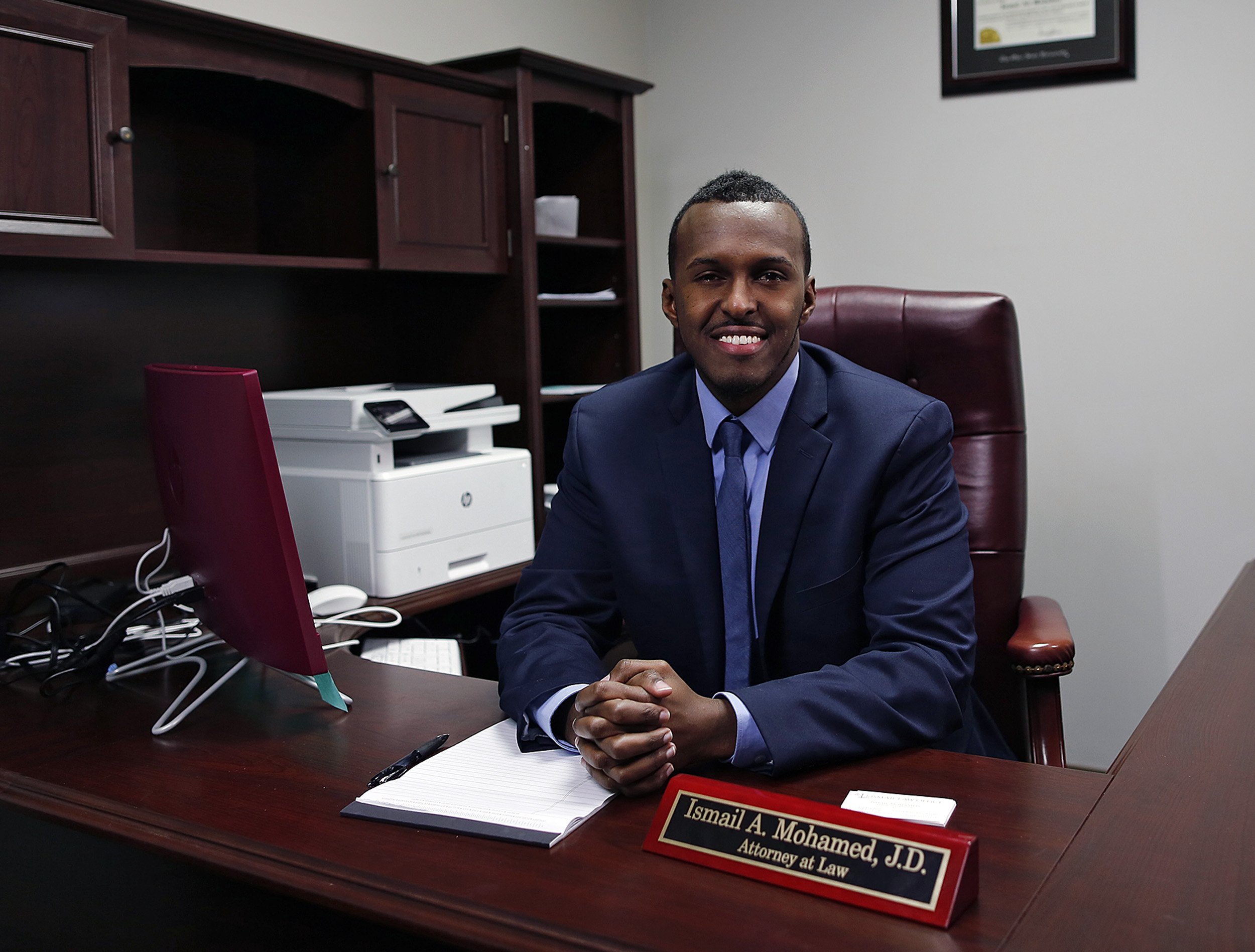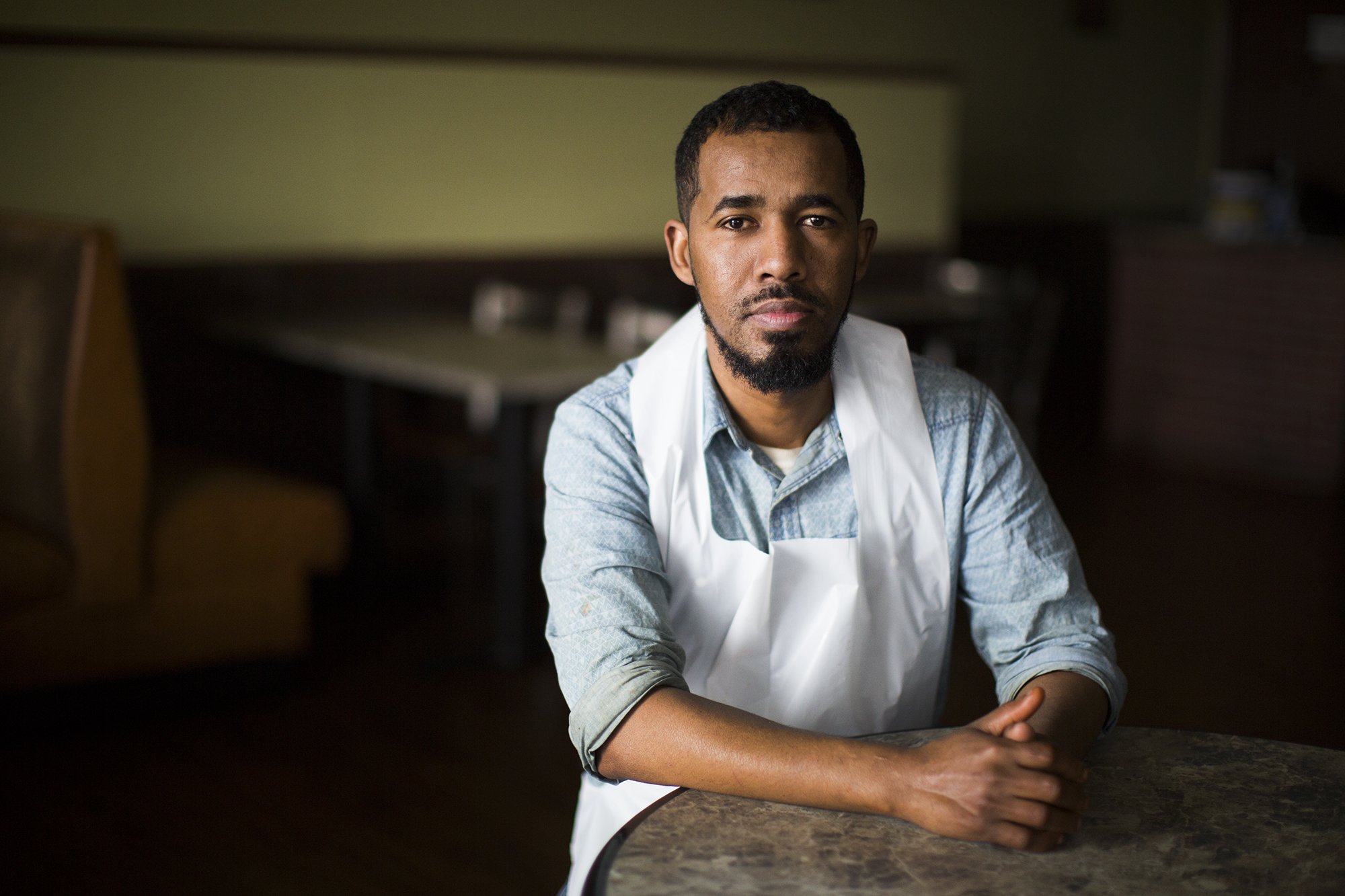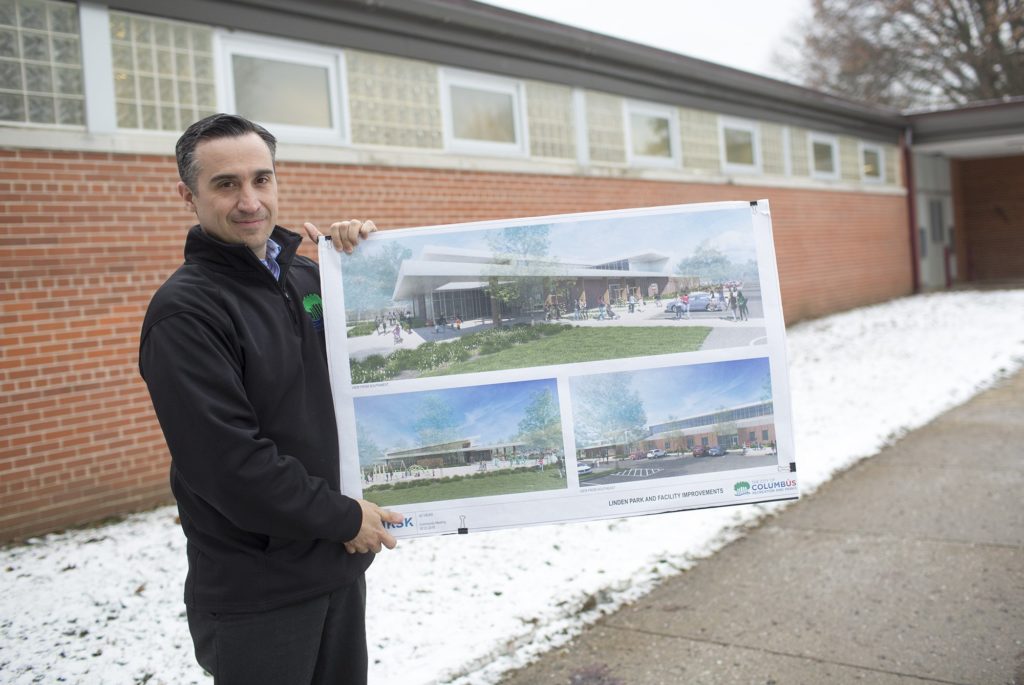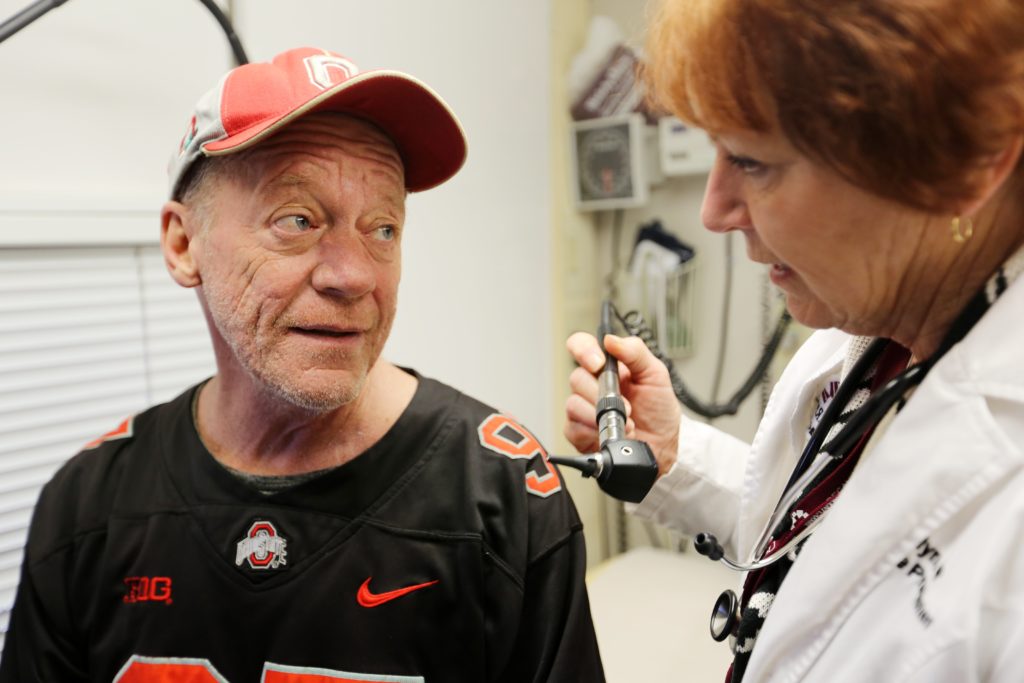LIVING IN LINDEN
Exploring a neighborhood's struggles and possibilities
Immigrants help to stabilize, grow Linden into a more vibrant neighborhood
Ismail Mohamed is the newest member of the North Linden Area Commission. He might be Ohio's first lawyer born in Somalia, and he ran for state representative in 2018.
He also is one of more than 1,700 foreign-born residents in North and South Linden, attracted to the area because of its lower housing costs and the desire to be near other immigrants trying to build a new life in the long-struggling neighborhood.
Their presence might be stabilizing Linden's population after a decades-long drain. And their businesses that line Cleveland Avenue, from clothing stores to groceries to tax services, fill aging strip centers and office buildings, adding energy to what had been a declining commercial corridor.
"If you look at some of the businesses located along Cleveland Avenue, they tend to locate those businesses close to new American families," said E.J. Thomas, CEO of Habitat for Humanity MidOhio.
"You can go to Caribbean restaurants, Somali restaurants that are authentic," said Jennifer Adair, the commission's former chairwoman and now a Columbus school board member.
Mohamed's law office is off East Dublin-Granville Road in the Northland area, but the 26-year-old has lived in North Linden for at least 14 years.
"It's a great neighborhood to live in. Affordable," Mohamed said. "It's livable for recent arrivals. I also think that people naturally gravitate to each other."

The foreign-born population in North and South Linden is still relatively small; only about 5 percent of the 37,704 people who live there were born outside the United States, census data provided by the Columbus Department of Neighborhoods show.
But they have a growing presence.
Of the 1,755 immigrants and refugees living in the Linden area, 623 — or more than 35 percent — come from Africa, including Somalia on its eastern coast. Ninety-nine people are from Ghana on the western coast, and 139 are from northern Africa.
In addition, 381 people have Mexican roots, 62 are from Guatemala, and 41 are from Haiti.
And 46 people are from Canada.
Mohamed said that John Lathram, who leads North Linden's area commission, approached him about joining the commission to fill a vacant seat late last year.
"He was aware we need diversity on the commission as well," Mohamed said.
Despite all the new arrivals to the neighborhood, it has been difficult to get immigrants more involved in the community, Lathram said. Four Somali families live on his Myrtle Avenue block.
"We are trying to encourage new Americans to be invested in the neighborhood and local government," Lathram said. "I've reached out to them. It's been a challenge."
Sharif Ali plans to live in North Linden for a while. Ali, his wife and their three young children — ages 6, 3, and 1 — plan to move into their new Habitat for Humanity house on Minnesota Avenue soon.
"I wanted to be in Linden. I like the neighborhood because I just choose it. It's good for me," he said. "I can afford it."
His monthly mortgage payment is $650; he also checked out locations on the South and North sides and in Newark.
Ali, 34, is a press operator for a carton company in Groveport, commuting 16 miles each way.
Habitat for Humanity MidOhio's Thomas said his organization has housed nine Somali families in the Linden area since 2014.
Habitat has spent the past five years building on the South Side and in the Linden area. "Certainly, they had the choice of where to live," Thomas said.
Hassan Omar is the longtime executive director of the Somali Community Association of Ohio. He said he is hiring researchers at Kent State University to study the economic impact of the Somali community on Columbus, including the Linden area.
Linda Robertson, director of Kent State's Center for International and Intercultural Education, said the researchers will look at both business and income aspects of the immigrants' presence.
Shawn Rohlin, one of the researchers and an associate professor of economics at Kent State, said they'll survey the community to identify spending patterns as well as businesses.
They might want to interview Ahmed Sheikhuna at Safari Coffee House at Cleveland Avenue and Innis Road, a gathering spot for the Somali community for 18 years.
Sheikhuna, 28, said his business attracts not only Somali customers but also African-American and white customers, who are drawn by the coffee as well as the Somali tea, African rice and sambusa — triangular pastries stuffed with fish.
But he said the restaurant business is getting tougher. "We're getting a lot of competition," he said.
Inna Simakovsky has run her immigration-law office on the second floor of a worn-looking strip shopping center on Cleveland Avenue since 2007.
Simakovsky, a Russian refugee, said she sees a growing presence of immigrants from Bhutan, Iraq and African countries including Ghana who are starting home health-care and transportation businesses and day-care centers.
She said the 59-year-old shopping center is now owned by Somalis who had subleased it from the previous owners. Banadir Mall LLC bought the property for $1.35 million in July 2018.
Abdullahi Warsame is one of the five people who formed the partnership and bought the building. He said sinking so much money into the center shows that the partners are committed to the area.
About 80 businesses fill the center. Each pays about $300 to $400 a month in rent. "Everybody pays rent, contributes," Warsame said.
One of those tenants is Abdiweli Mahamud, who prepares tax returns in his cramped office and is a newly licensed real-estate agent. Mahamud said he wants to start to help the Somali community buy houses as rents rise. He's teaching Somalis how to improve their credit.
"There is big demand. I sit down with a lot of the people. A lot of them are not qualified, income-wise," Mahamud said.
But many want to plant roots, he said. In Linden.


